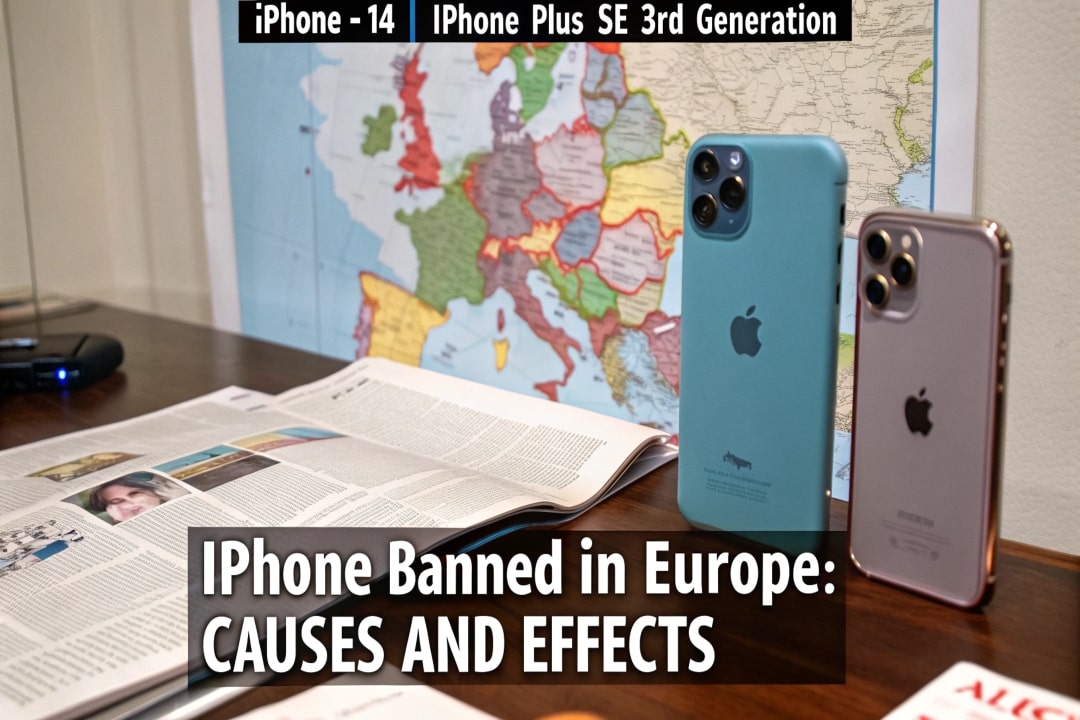Apple’s current iPhone lineup includes three models with a Lightning connector: the iPhone 14, iPhone 14 Plus, and iPhone SE (3rd generation). These three models are now banned from sale in 29 countries, including the United Kingdom. The main reason for this change is a new directive from the European Union (EU), which came into effect on December 28, 2024.
EU directive and Apple’s response
The EU directive aimed to reduce electrical waste. The directive mandated the use of a common charging port, USB-C, on devices such as phones, cameras, and tablets. Apple opposed the decision, saying it could stifle creativity. However, as a result of the EU directive, Apple has included a USB-C charging port in its iPhone 15 and subsequent models.
Reasons for stopping models with Lightning connectors
The iPhone 14, 14 Plus, and SE (3rd generation) used the Lightning connector, which is not compliant with the new directive. Therefore, sales of these models had to be stopped in 27 EU countries by December 27, 2024. These models have been removed from Apple’s website.
Opportunity for third-party sellers to sell
However, according to EU law, third-party sellers can still sell these models until stocks run out. For example, the iPhone 14 is still being sold on Amazon in Spain.
Situation in Britain and other countries
Although the UK has left the EU, the directive applies to Northern Ireland due to special trade rules. As a result, these models can no longer be purchased in Belfast. At the same time, the change has also taken effect in Switzerland, which is located outside the EU but complies with EU rules in many respects.
Future of the iPhone SE
Sales of the iPhone SE are gradually declining, as a new model is likely to arrive in spring 2025. However, the current situation is not ideal for Apple.
Impact outside Europe
Countries outside Europe are noticing this change, but it is unlikely to bring about any major changes immediately. If other countries also enact such laws, it will take several more years for them to take effect. In the meantime, Apple will completely withdraw its models with Lightning connectors from the market.
This EU directive has brought about major changes in the technology industry and will play an important role in reducing electrical waste. Apple is adapting to the directive by adding new technologies to its products. However, its impact on consumers and the market is not yet clearly understood.
Can Read: Never Lose Your Valuables Again: Discover the Magic of Apple AirTags!
FAQ
Why are the iPhone 14, 14 Plus, and SE (3rd Gen) discontinued in Europe?
These models have been discontinued due to the European Union’s USB-C mandate.
When did this rule go into effect?
This rule went into effect on December 28, 2024.
Can these models be purchased outside of Europe?
Yes, these models can still be purchased through third-party sellers outside of Europe.
Where else outside of Europe is this rule affected?
This rule is affected in Switzerland and Northern Ireland.
Has Apple completely switched to USB-C?
Yes, the iPhone 15 and later models use the USB-C port.
When will the new iPhone SE model be released?
The new iPhone SE is expected to be released in spring 2025.
What is the purpose of this rule?
The main purpose of this rule is to reduce electronic waste and provide a universal charging system for users.
Does this rule apply in the UK?
This rule is in effect in Northern Ireland, but not in most parts of the UK.
How has Apple complied with this rule?
Apple has complied with this rule by including USB-C ports in their new devices.
How can the iPhone 14 still be purchased from third-party sellers?
Some models are still available in stock from third-party sellers.
